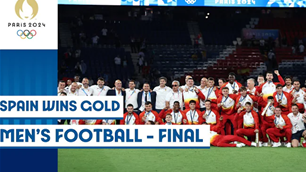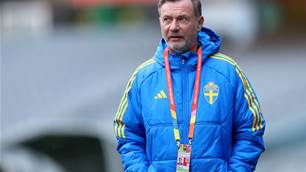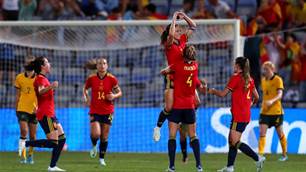Take a look at the winners and losers from a tight Group C
In what was probably the easiest group to predict in this year's European Championships, Spain and Italy progressed at the expense of Ireland and Croatia from Group C. It was the result which most predicted, with both Spain and Italy going undefeated in the group. However, it did take Italy until the final match against Ireland to win a game, with a 2-0 win securing their spot in the quarter-finals.
Looking at Ireland's squad, you have to agree that they were out of their depth from the start. It could never be expected that players like Darron Gibson, James McLean and Glenn Whelan can compete with the likes of Xavi, Iniesta, Andrea Pirlo and Luka Modric. Despite this, Ireland still showed Europe and the rest of the world that no matter how much the odds are stacked against them, their players will always give 110% for their country. Not only that, but the fans will also stand by their team, unaffected by the scorelines. This attitude was prominent especially during the defeat to Spain. Despite being 4-0 down, the supporters continued to sing as one, displaying the type of passion and coordination that is sometimes sadly lacking from international football support.
After beating Ireland and a creditable draw against Italy in the first two rounds, Croatia could have been quietly confident that they would progress to the quarter-finals. Unfortunately, football is rarely as simple as that. For eighty-seven minutes though, it looked like Croatia would be going through to the quarter-finals, tied 0-0 with Spain. Then a minute later, Jesus Navas striked from close range to give Spain a 1-0 victory and the top spot of the group. Italy went on to beat Ireland 2-0, knocking Croatia out of the tournament. Throughout the group, Croatia offered an exciting brand of football, which can be expected from a team that boasts the likes of Modric, Jelavic, Srna et al. Unfortunately, off the pitch was not so pretty. It was sad to see that some Croatian fans racially abused Italian striker Balotelli, and that they are being investigated again after displaying a flag with racist slogans in the game against Spain. However, it was refreshing to see how clearly and strongly the national coach, Slavan Bilic, condemned the fans’ actions, saying, “We are not a racist country and we are angry at these few crazy supporters. We have to put sanctions on these kind of supporters and stop them forever.” Too many times managers attempt to ignore or defend their fans behaviour, so this attack on the racist fans that follow the Croatian team was extremely welcome.
It was a refreshing change to see a team take on Spain, and Italy really had a go at the World and European Champions. They employed an unusual 3-5-2 formation, while Spain went into the match without a recognised striker. The game was fast paced yet skilful and although it was a low scoring 1-1 draw, the fans were treated to some fantastic moments, particularly the ball that Silva played to carve open the Italian defence, allowing Fabregas to get Spain’s equaliser. Both teams deserve credit for this entertaining game. A stand-out performer for Italy throughout the group stage was Andrea Pirlo. The thirty-three year-old playmaker was involved in a goal in each of Italy's matches, providing the cutting ball for Antonio Di Natale's goal against Spain, scoring a wonderful free-kick against Croatia and assisting Antonio Cassano's goal with a lovely cross from a corner kick. Pirlo is walking proof that age doesn't matter when it comes to football, all that matters is your ability. Italy have improved with each game in the group stage and they face an English team in the quarter-finals who seem to have a new-found unity after topping Group C in what was a shock to most.
As predicted, Spain topped the group, despite playing the toughest match of the group against Italy without a recognised striker. That seems to be the tactic of choice from manager Vincent del Bosque, preferring to play with a 'false nine'. One thing that has to be noted is that the Spanish players have certainly looked tired at times and with the close scheduling of international tournaments, that could end up being the reigning champions' downfall. In fact, through various points of the matches against Croatia and Italy, it looked entirely possible that Spain could lose to each team. But as they have done before, the Spaniards showed that all that matters in football is the results, which they have achieved in this tight group. Despite all this, Spain should still be one of the favourites to win the tournament. They can certainly be expected to make it past a French team that has showed quite a few weaknesses in the group stage, especially during their match against Sweden.
The rest of these European Championships promises to offer more excitement on top of what we have already witnessed during all four groups. Will Spain successfully defend their title? Could Italy go on to claim victory six years on from their 2006 World Cup win? Only time, and football, will tell.
Related Articles

Spain complete golden summer with victory over France

Spain, Sweden set for high pressure World Cup semi













